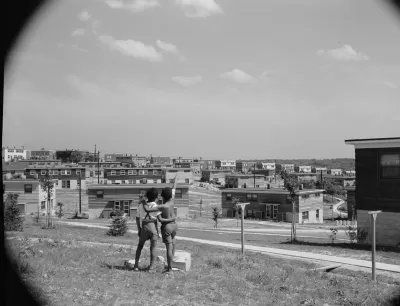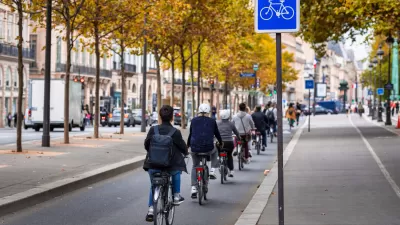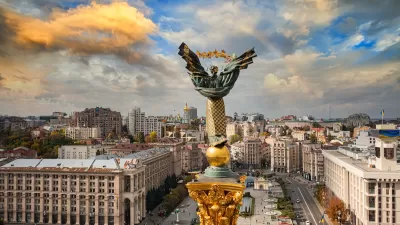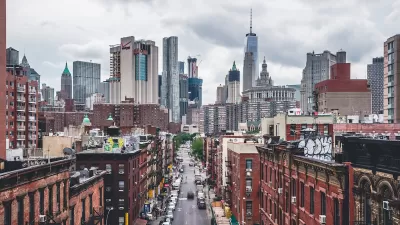Change doesn’t happen accidentally. Who are the people shaping cities and communities through the Covid-19 pandemic and beyond?

The world has changed in a lot of ways since Planetizen last surveyed readers to create a list of Most Influential Urbanists in 2017, and so has urbanism. The Covid-19 pandemic highlighted existing problems faced by cities and communities, created new ones, and brought to light structural inequities and vulnerabilities we previously ignored.
Now more than ever, planning and its associated fields can play a crucial role in building healthier, more resilient, more equitable, and more sustainable cities. From public health advocates to housing reform activists, safe streets champions, and disability rights advocates, people from a wide range of communities and professional fields are challenging the status quo and demanding solutions to urban problems that create more equitable outcomes for all residents.
In 2017, we called on readers to nominate people from a broad range of disciplines as well as ethnicities and genders, but we recognize the list wasn’t sufficiently diverse. This time around, we want to further amplify the work and influence of communities of color, women, and the LGBTQI+ community in shaping cities and making them more inclusive, accessible, and safe and highlight the efforts of leaders and organizations that have catalyzed changes at every level of government. We hope our list can reflect the changing demographics of the planning field as well as the growing recognition that the built environment and public policy have significant, and often unequal, impacts on people and communities.
To submit your nominations, please send an email to [email protected] with the subject line “Influential Urbanists.” Please share this call widely with the communities you are part of. Also feel free to join the discussion with @planetizen and by using the #topurbanist hashtag on Twitter. We'll release the official results of the “Most Influential Urbanists” poll, and let the voting commence, during the last week of May.

Maui's Vacation Rental Debate Turns Ugly
Verbal attacks, misinformation campaigns and fistfights plague a high-stakes debate to convert thousands of vacation rentals into long-term housing.

Planetizen Federal Action Tracker
A weekly monitor of how Trump’s orders and actions are impacting planners and planning in America.

In Urban Planning, AI Prompting Could be the New Design Thinking
Creativity has long been key to great urban design. What if we see AI as our new creative partner?

King County Supportive Housing Program Offers Hope for Unhoused Residents
The county is taking a ‘Housing First’ approach that prioritizes getting people into housing, then offering wraparound supportive services.

Researchers Use AI to Get Clearer Picture of US Housing
Analysts are using artificial intelligence to supercharge their research by allowing them to comb through data faster. Though these AI tools can be error prone, they save time and housing researchers are optimistic about the future.

Making Shared Micromobility More Inclusive
Cities and shared mobility system operators can do more to include people with disabilities in planning and operations, per a new report.
Urban Design for Planners 1: Software Tools
This six-course series explores essential urban design concepts using open source software and equips planners with the tools they need to participate fully in the urban design process.
Planning for Universal Design
Learn the tools for implementing Universal Design in planning regulations.
planning NEXT
Appalachian Highlands Housing Partners
Mpact (founded as Rail~Volution)
City of Camden Redevelopment Agency
City of Astoria
City of Portland
City of Laramie





























